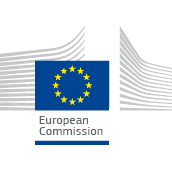
Increasing access to educational tools in areas and communities with low connectivity or access to technologies
Deadline: Jul 15, 2021
CALL EXPIRED
CALL EXPIRED
Rural Development
Social Innovation
Social Affaires and Inclusion
Disadvantaged People
Child Care
Education and Training
Digital Culture
Digital Society
Social and Welfare
The Covid-19 crisis resulted in one of the greatest challenges education and training systems have faced in the last decades. Many schools, particularly those located in remote areas, faced severe challenges with the switch to distance and online learning, due to their low prior level of digital readiness. Many of their teachers lacked the relevant digital competences to properly teach remotely and many pupils living in remote areas lacked the proper infrastructure including connectivity and access to digital devices, tools and content at home.
Therefore, the loss of learning opportunities strongly impacted especially those that have already suffered a disadvantage before the crisis (e.g. pupils such as those living in remote areas like mountain areas, rural areas, islands or deltas, etc.).
This calls for reinforced actions to ensure inclusion is a leading priority in education and training, granting the right to education for all.
Objective:
This action aims at addressing inequalities of access to digital education by enhancing inclusion and by reducing the digital gap suffered by pupils from remote areas and communities with low connectivity, limited or no access to devices and digital educational tools and content.
This action aims at developing a strategy designed to increase access to digital education in the EU remote areas and communities that mostly need such support.
The action will also run deployment actions in primary, secondary and vocational schools in order to implement and test some of the most suitable technical solutions to reduce the digital gap suffered by pupils from remote areas and communities. These deployment actions will be accompanied by targeted educational consultation and training services for schools and teachers.
Expected impact:
The action is expected to produce the following results:
- To gain insights and understanding related to the access and use of, and attitudes and needs towards the use of digital technologies in education by surveying head teachers, teachers, ICT coordinators, pupils and parents covering as many schools located in remote areas of as many EU Member States as possible. This should be done by collecting comprehensive and high-value up-to-date and reusable data to mainly explore lessons learned during and after the Covid-19 pandemic well as to empirically validate the areas of necessary investment needs;
- To strengthen the dialogue between all relevant actors, including school principals, teachers, ICT coordinators, pupils, parents, technology providers, policy-makers, universities and research organisations, experts and non-governmental organisations (NGOs) with the aim to exchange and analyse best practices and successful applications of how to increase access to digital educational solutions with a focus on schools located in remote areas.
- To support schools with targeted educational consultation and training services ahead and during the take-up of deployment pilots (see next bullet point). The services are designed to support schools located in remote areas with aspects of self-evaluation (e.g. using the SELFIE self-reflection tool for schools) and school improvement in order to successfully plan, choose and implement the best digital technology solutions for the inclusivity of their pupils.
- To run deployment pilots to allow primary, secondary and vocational schools to benefit from the most suitable technical solutions to reduce the digital gap suffered by pupils from areas and communities with low connectivity, limited or no access to devices and digital educational tools and content. This will be done through a financial support to third parties (FSTP) mechanism applying a fair and transparent selection process via open calls. At least 50% of the budget is expected to be dedicated to financial support to third parties (FSTP) and the maximum amount of FSTP, distributed through a grant, is EUR 20.000 per third party for the entire action duration but smaller amounts may also be justified.
- To accompany the deployment pilots by running training programmes to enhance teachers’ digital competences regarding the use of the newly implemented digital devices and digital educational tools and content as well as regarding the development of innovative pedagogies.
- To develop a strategy based on the insight gained by the collected data, the various dialogues with stakeholders and running the deployment pilots, with regard to how to increase access to digital education in remote areas and communities with low connectivity, limited or no access to devices and digital educational tools and content throughout the EU. The strategy should result in the publication of ready-to-use guidelines and standards.
The action should reach a large number of EU Member States and as many EU primary, secondary and vocational schools located in different types of remote areas as possible.
Public link: Only for registered users
 Pilot Projects & Preparatory Actions
Pilot Projects & Preparatory Actions


Please Log In to See This Section